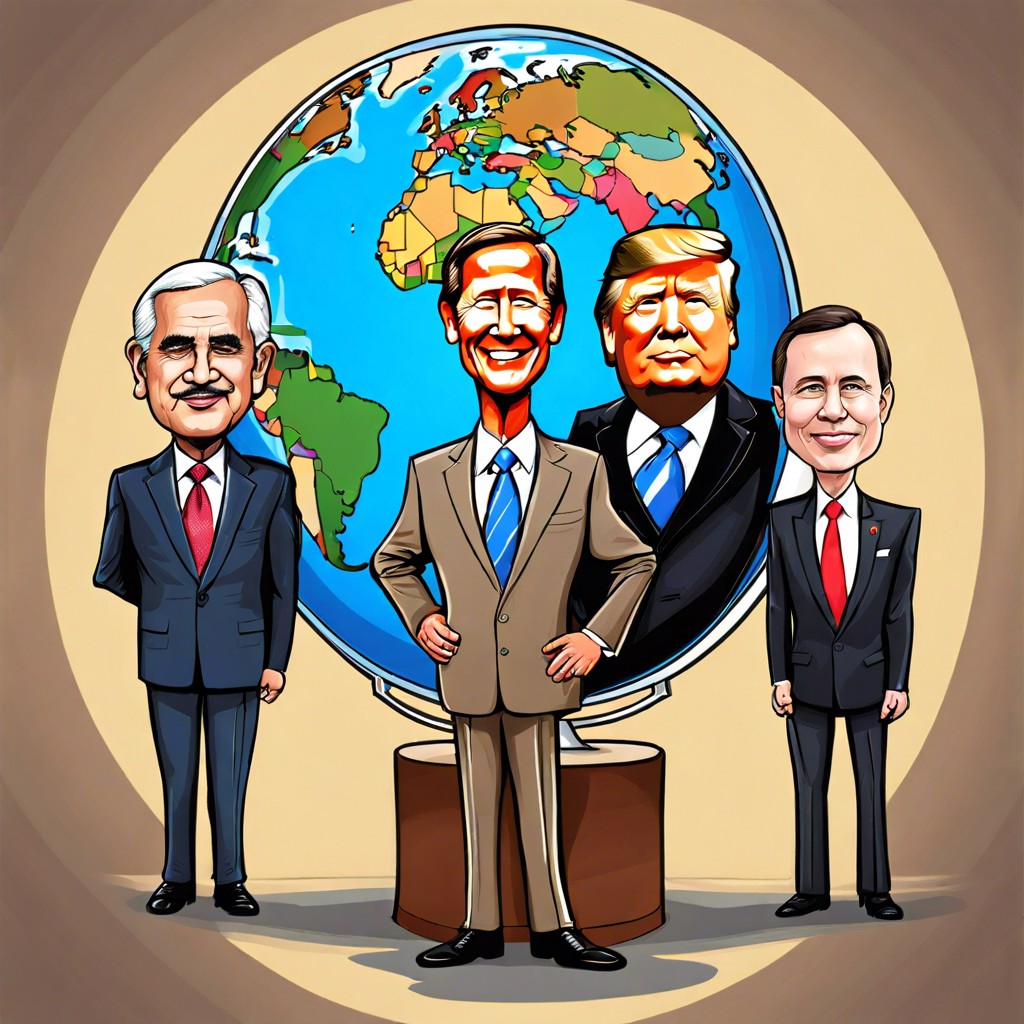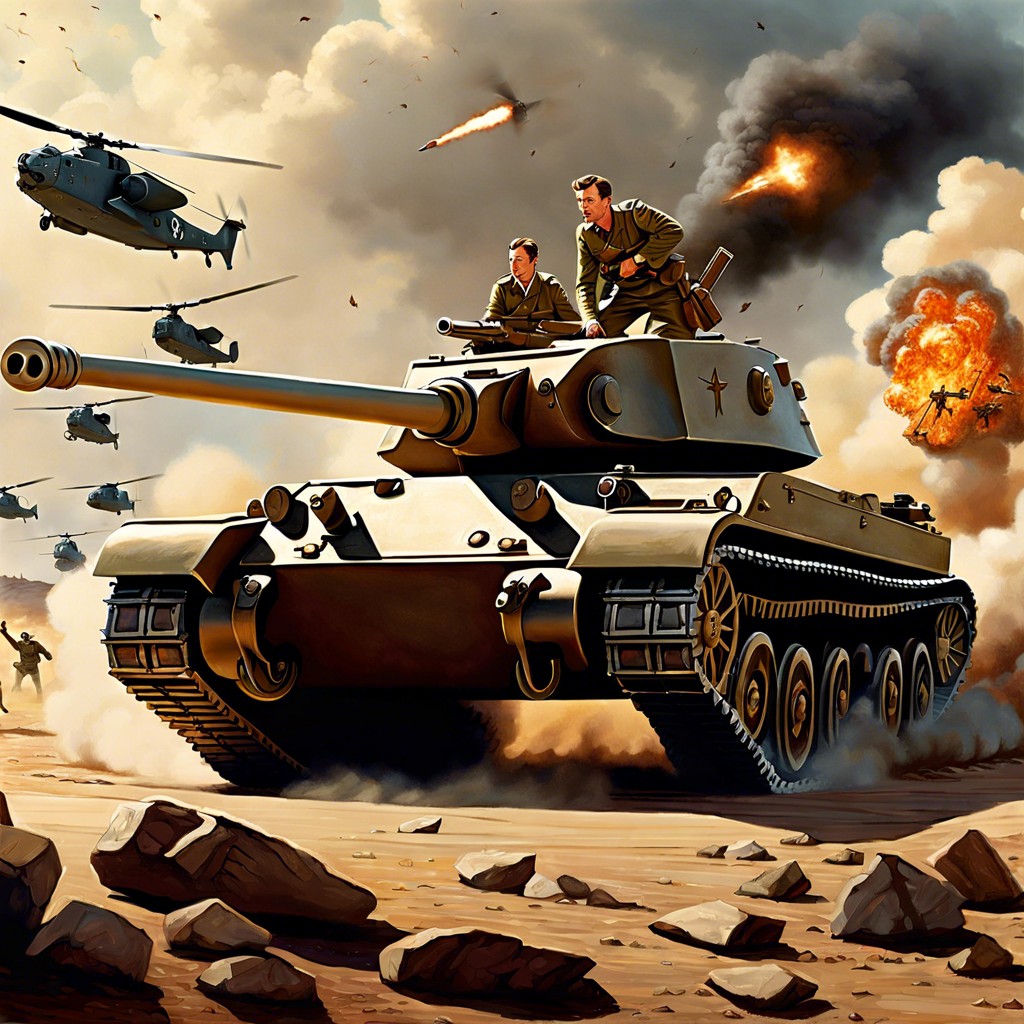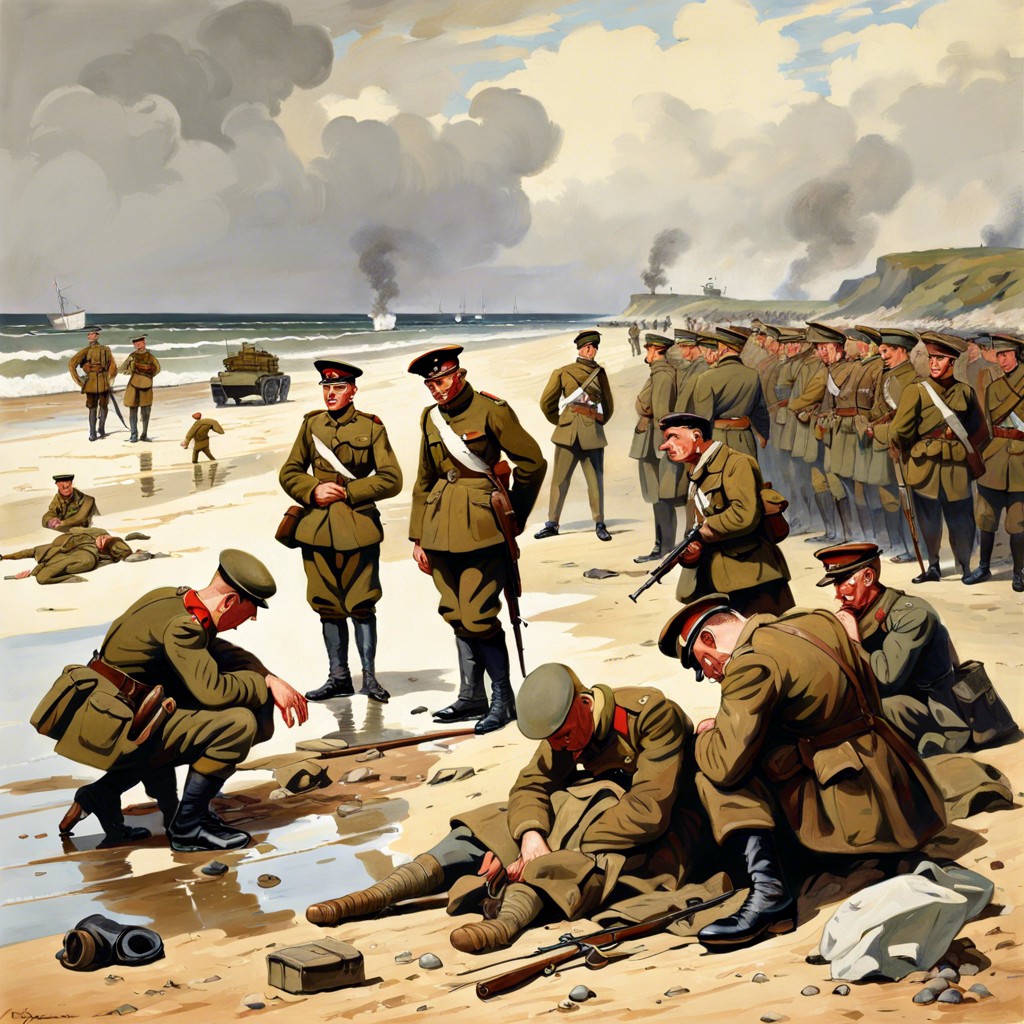Discover how the world might have evolved differently if World War II never unfolded.
Imagine a world where the cataclysm of World War II never happened. Picture a global political landscape without superpowers, technological and scientific advancements taking unexpected turns, and social and cultural movements walking wholly different paths. What would our economies look like; how might ethnic and national boundaries evolve? Buckle up, as we dive into a reality less war-torn, potentially more progressive, but infinitely intriguing.
Key takeaways:
- No superpowers, more balanced influence, localized diplomacy.
- Slower tech innovation, delayed medical breakthroughs, different energy sources.
- Lag in civil rights progress, slower gender equality, cultural shifts.
- Altered global economy, no wartime boosts, varied economic landscapes.
- Stable borders, reduced displacement, stronger cultural identities.
Global Political Landscape (No Superpowers)

Imagine a world without larger-than-life superpowers looming over the global stage. Instead of the United States and the Soviet Union playing tug-of-war with ideology, we might have seen a more multipolar world. Countries like Germany, Japan, and even smaller nations could have wielded more influence, creating a more balanced geopolitical atmosphere.
With no Cold War, espionage games would likely be less of a Hollywood staple. Fewer spy movies, more… well, who knows what?
The absence of the wartime alliances and post-war power blocks might mean organizations like NATO and the Warsaw Pact never exist. Global diplomacy could look very different, perhaps more localized and less dominated by colossal superpower interests.
So, summing up, we could have had a world where more voices were heard, and the political chessboard was less predictable. Lesser-known countries might have had their time in the limelight, and international policies could have been driven by a broader range of interests. Think more potluck and less set menu.
Technological and Scientific Advancements (Impact On Innovation)
Without World War II as a catalyst, the pace and direction of technological and scientific advancements might have taken a drastically different trajectory.
Firstly, the rapid advancements in aerospace and rocketry driven by wartime needs might have emerged far slower. No race for dominance means less motivation to reach for the stars (or the moon, for that matter).
Medical breakthroughs, such as the development of antibiotics, owe much to the urgency of wartime casualty care. Without the war’s dire necessity, medical research funding and innovation might have lagged, potentially delaying life-saving drugs by decades.
The computer age, driven by the need for codebreaking and complex calculations, might have appeared much later too. Alan Turing and his fellow geniuses were propelled by war demands, so less urgency means computational technology could have lagged behind, leading to a very different world today.
Radar, initially designed for detecting enemy aircraft, revolutionized everything from weather forecasting to air traffic control. With no threat from the skies, investments in this technology might have been minimal.
Lastly, let’s not forget the atomic bomb. Its horrific power did pave the way for nuclear energy developments. Without it, we might be more reliant on fossil fuels today, and our clean energy discussions would look quite different.
In essence, the absence of World War II likely means a slower, perhaps less determined march along the road of innovation.
Social and Cultural Movements (Civil Rights, Gender Roles)
Imagine a world where the Rosie the Riveter poster was just another cheery office lady ad. World War II ended up being a pivotal moment for gender roles, pushing women into the workforce. Without it, progress might’ve lagged like a forgotten garden hose. The movement for women’s rights might’ve been slower, resulting in less progress towards gender equality during the 20th century.
Civil rights movements, too, saw acceleration post-WWII. The fight for racial equality gained momentum in part due to African Americans’ vital contributions during the war, highlighting the irony of fighting for freedom abroad while being denied it at home. Without the war’s unique pressures, the Civil Rights Movement might have unfurled more slowly, like molasses in January.
Cultural shifts were another by-product. Jazz and blues exploded post-war, setting the stage for modern music. Think about having a music scene still dominated by polka and waltzes. Sounds like a snooze-fest, right? Not without charm, but certainly with less groove.
Youth culture also underwent seismic shifts, partly driven by post-war affluence and the baby boom. Without WWII, teenagers may have stayed in their youth-defined cages a bit longer, missing out on forming the vibrant, rebellious identity they did in the swingin’ 60s.
Economic Patterns (Global Economy, Development of Nations)
Imagine a world where there are no post-war economic booms or recoveries. The American and Japanese economies, for instance, might not have achieved their rapid accelerations, changing the global pecking order completely.
Let’s talk Marshall Plan, or rather, no Marshall Plan. Without the need for massive reconstruction, Europe wouldn’t have received that hefty financial boost from the US. This could mean slower economic recovery or even prolonged stagnation in European countries.
We can’t ignore wartime innovations that drove post-war industries. No radar tech, no quick leap to commercial aviation dominance. Fewer radar chips, more wood pigeons possibly?
Unemployment might still be the forty-hour-day grind. With fewer wars driving men to the fronts, women might have waited longer to enter the workforce en masse. All aboard the patriarchy express!
Resources would have been distributed differently. Perhaps Africa and Asia wouldn’t have been left with such stark economic disparities. Colonies might have gained independence more gradually, leading to varied economic landscapes.
So, fewer skyscrapers in Manhattan, but perhaps more equitable global development. It’s a fascinating what-if, right?
Ethnic and National Boundaries (Different Borders, Reduced Displacement)
Imagine a world without the mass migrations caused by World War II. First off, numerous ethnic groups would have remained in their ancestral lands instead of scattering across the globe. European borders would likely look quite different, with fewer people uprooted from their homes.
National boundaries would be less fluid. The geopolitical chessboard would stagnate, leading to fewer territorial shifts post-1940s. People might still be haggling at the market with their long-time neighbors rather than recounting their multi-country refugee experience.
Cultural blending might take a back seat. Those accidental culinary marriages—think the American adoption of pizza or sushi—could be less prevalent. Italians might still be keeping their grandmothers’ secret marinara recipes secret.
Communities could have maintained stronger, unbroken cultural identities. Neighborhoods wouldn’t be known for their melting pot dynamics but rather for deep-rooted traditions kept within fixed borders.
And lastly, imagine the governmental paperwork saved! With fewer people needing new citizenship, think of the forests that could have been spared from the paper trail.




